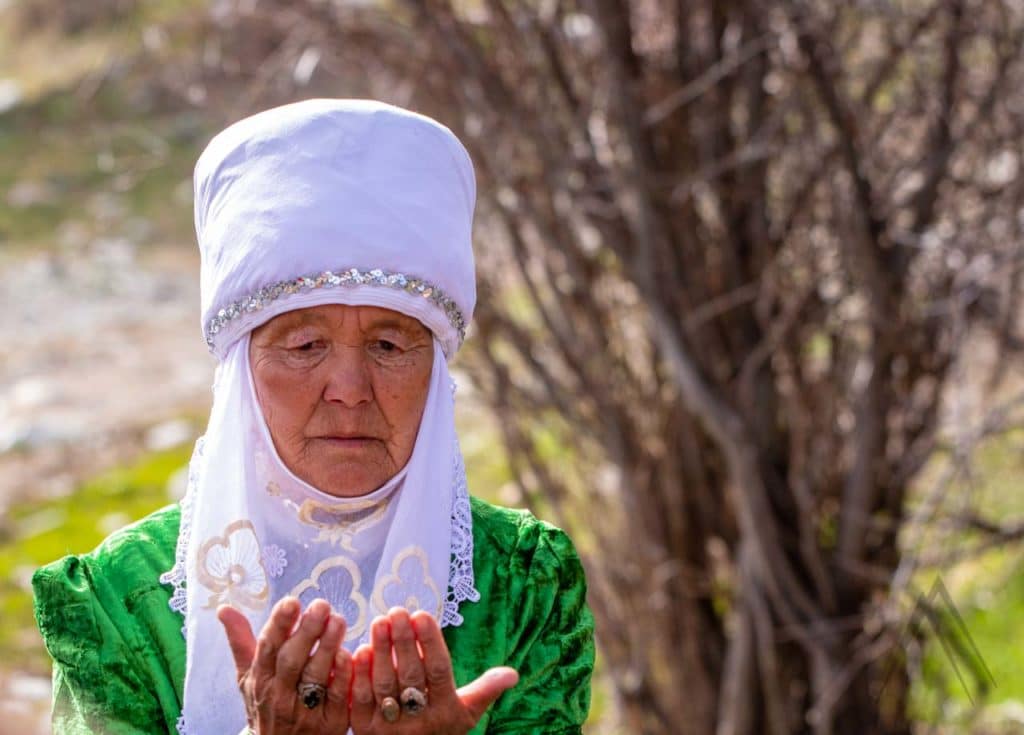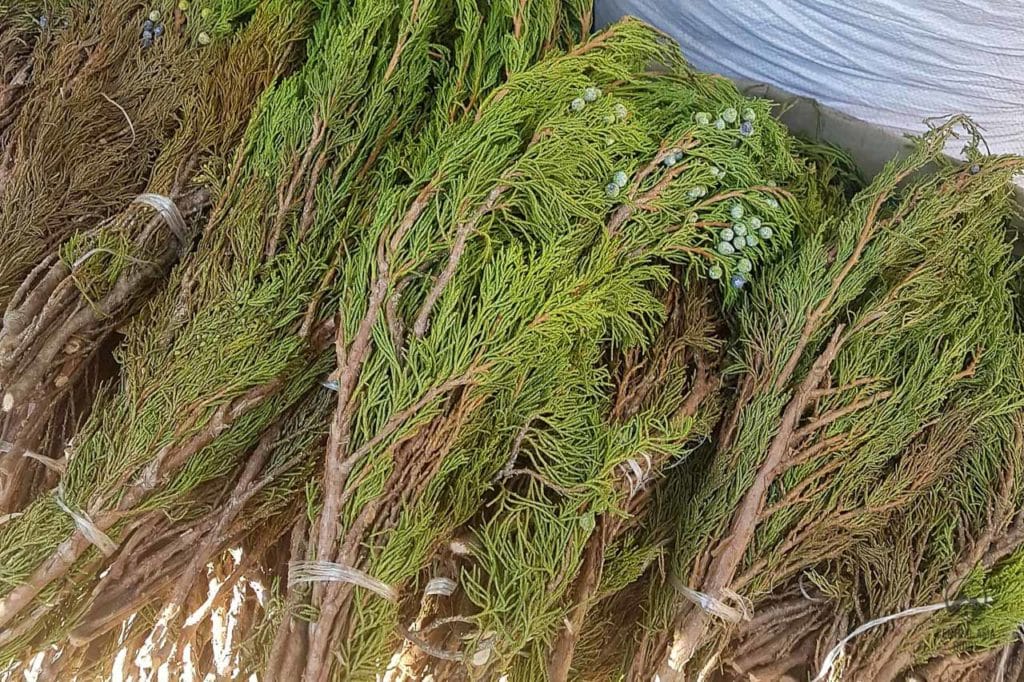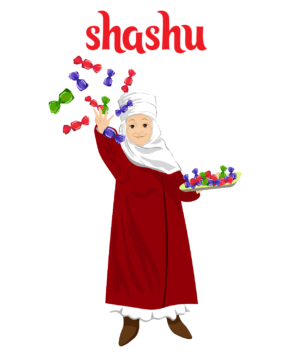Kyrgyz Rituals
Kyrgyzstan Rituals
Kyrgyz rituals often reflect a blend of ancient nomadic traditions, Islamic practices, and nature worship.
The Omin Gesture
In Kyrgyzstan, the gesture of “Omin” (also spelled “Amin” or “Ameen”) is a deeply meaningful Islamic practice that permeates many aspects of daily life, particularly during meals. It is both a spiritual act and a cultural expression of gratitude, community, and respect. The Omin prayer is performed by raising the hands in front of the face, palms facing upward, typically at the beginning or end of a meal.
The Omin may be offered before eating, accompanied by a brief prayer to bless the food and give thanks for the sustenance provided. More commonly, it is performed at the end of the meal, expressing gratitude to God (Allah) for the meal and to the host for their hospitality.
This gesture is seen as a symbol of respect, gratitude, and humility. By giving thanks to God and seeking blessings, it fosters a shared spiritual connection among those present. It also acknowledges the effort of the host in preparing the meal. In Kyrgyz culture, hospitality is highly valued, and the Omin reinforces this by showing mutual appreciation between hosts and guests. The host takes pride in offering the meal, and the guests honor this by participating in this cherished cultural and religious tradition.
Bata

In Kyrgyzstan, the Bata ritual is a deeply rooted tradition that involves offering a blessing or prayer, often recited by an elder or respected figure. This important cultural practice is not limited to meals, as it is also performed during significant life events, for health and safety prayers, or communal supplication.
The Bata gesture, which involves raising the hands in front of the face with palms upward, mirrors the Omin prayer and holds immense spiritual and cultural significance.
The Bata is a traditional Kyrgyz prayer or blessing offered to express gratitude and ask for protection and prosperity. It is commonly led by an elder, symbolizing the importance of wisdom and experience in Kyrgyz culture. The practice is performed in various situations, such as the following below.
- Before or after meals, as a way of giving thanks for the food and blessing the hosts.
- At important life events like weddings, the birth of a child, or during funerals to bless and support those involved.
- Before embarking on journeys, to wish travelers safety and success.
The Bata reflects essential Kyrgyz values of gratitude, respect for elders, and community. It serves as both a spiritual practice and a cultural tradition, reinforcing connections between individuals and families. The blessing is seen as a way to invoke divine protection, prosperity, and good fortune.
While the Bata remains widespread, especially in rural areas, it has evolved to fit modern life in urban settings. In cities, it is still practiced at key events such as weddings to bless the couple for a prosperous marriage and funerals to honor the deceased and pray for peace for the soul as well as during the family gatherings, to strengthen the bonds between loved ones. Although less frequently performed in everyday situations in urban areas, the Bata continues to play a vital role in maintaining Kyrgyzstan’s traditions and spiritual life.
The Bata ritual in Kyrgyzstan is a powerful expression of the nation’s nomadic roots and Islamic beliefs. It symbolizes the core values of hospitality, respect, and community that are central to Kyrgyz culture. Whether at a meal, a major life event, or simply to ask for blessings, the Bata remains an enduring tradition that strengthens both spiritual and social connections across generations.
Burning Juniper (Tynshyk)
Burning juniper is a significant ritual in Kyrgyz culture, often associated with purification and protection against evil spirits. This practice is common during various occasions, such as the new beginning and cleansing ritual.
When moving into a new home or starting a new venture, juniper branches are burned to cleanse the space and invite good fortune. Another one is when cleansing ritual: families may burn juniper during specific ceremonies to ward off negativity and purify the environment. The smoke is believed to carry prayers and wishes to the heavens.

Chachuu - throwing the candies

In Kyrgyzstan, the ritual of throwing candies is a joyful and symbolic tradition often associated with celebrations, particularly weddings, housewarming, baby showers, and other significant community or family events. Known as “Chachuu”, this custom is performed to spread blessings, good fortune, and happiness. Candies, or small sweets are typically thrown over the heads of participants, symbolizing wishes for prosperity, abundance, and sweet moments in life.
The tradition of Chachuu has roots in Kyrgyz nomadic culture and symbolizes the community’s wish for a prosperous future. It is believed that the scattering of sweets and coins ensures good luck, fertility, and happiness for the recipient, whether it’s a newlywed couple, a child, or someone marking an important milestone.
Last updated 18.10.2024